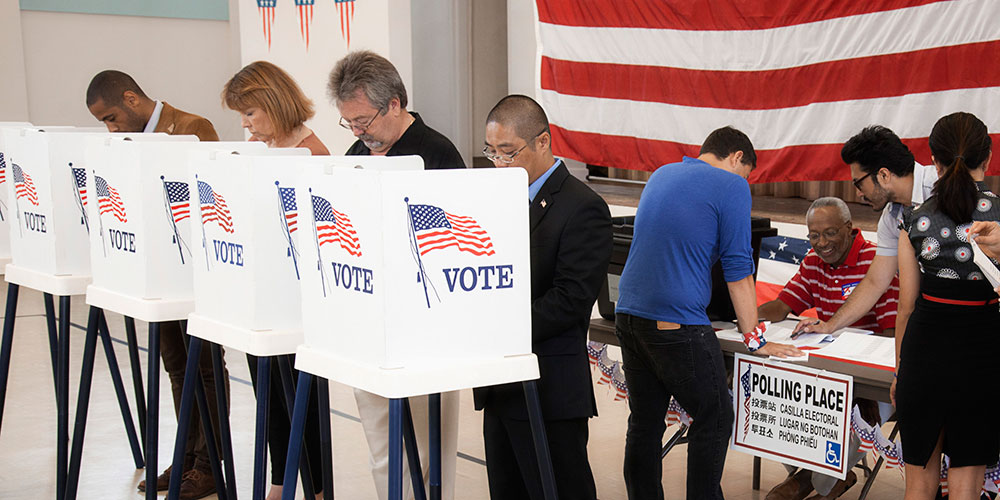Alwaght- Democracy is a system of government in which power is vested in the people, who rule either directly or through freely elected representatives. However, in the US, in light of a two-party system dominated by two major political rivals, the Democrats and the Republicans, and under strict and costly conditions that render free candidacy nearly out of the question, the people end up voting for what they believe to be the lesser of two evils, that is if they vote at all.
Such a state-of-affairs raises questions about the extent to which the US, the power that “fights” for democracy around the world, is democratic.
Ranking 20th in country on the world democracy index, and first by world region, the US seems to uphold democracy as a sacred torch almost as high as the statue of liberty. But even the statue of liberty and the values it stands for are compacted by the Empire State building, a symbol of money, economic prowess, and technological advances.
Political duopoly
While the system does make room for third-party candidates, the obstacles it places in front of them are quite unsurpassable. Never has the US witnessed a president from a party other than the Democrats and the Republicans.
The situation is not always painted in black and white, or in this case in red and blue. Third-party candidates and independents have run in the race, but the construct of the process has proven to be a complicated maze designed to hinder their progress.
The maze is made up of rules and the high cost of getting ballot access in 50 states. In order to get on the ballot, a candidate is faced with complex filing requirements and deadlines unique to each state.
Even if someone decides to venture into this muddle, he or she must be either loaded or backed by affluent persons, organizations or lobbyists which makes the process for an average American out of reach. It also leads to shift in loyalty. If a candidate makes it to the race through financial backing, an estimated $30 bn, his or her commitment would be to these backers instead of the American people. This contradicts with the concept of the president being by the people and for the people in a democratic state.
In 2012, a group called Americans Elect tried to break convention by making it possible for any qualified person to run for president. The attempt to help possible candidates to overcome the ballot access stumbling block, however, did not make it far. They failed to attract the 10,000 online votes needed to meet the threshold. Some argued that the timing was off and that the process demanded too much of the voters.
Theoretically, the Green Party and the Libertarian Party are the major third-party candidates joining the race but they are not expected to make it very far into the race.
The Future of the World
The US presidential election takes place once every four years. But mainstream media campaigns begin way before that. The extensive and sometimes exaggerated coverage indirectly suggests that the US presidential election is the most important incident in the world, well, because he is the chief of the world’s sole “superpower.”
Attention is cast on the election which means that the same light is dimmed from other crucial issues. The war on Yemen, Syria, and Iraq become secondary next to the election, even though the US has had a hand in pretty much most significant wars and issues around the world.
Still, the fact remains that the US president has power in his hands, or so we are led to believe, that affects not only domestic American issues but also international ones, considering the scope of Washington’s role on the world-wide political and economic arenas.
So, while many Americans are aware of their conundrum, they remain stuck in a political rut, alternating between the Democrats and Republicans and unable to break the “political duopoly.” And near the end of 2016, they will be deciding not only the future of America but also that of the world.



























